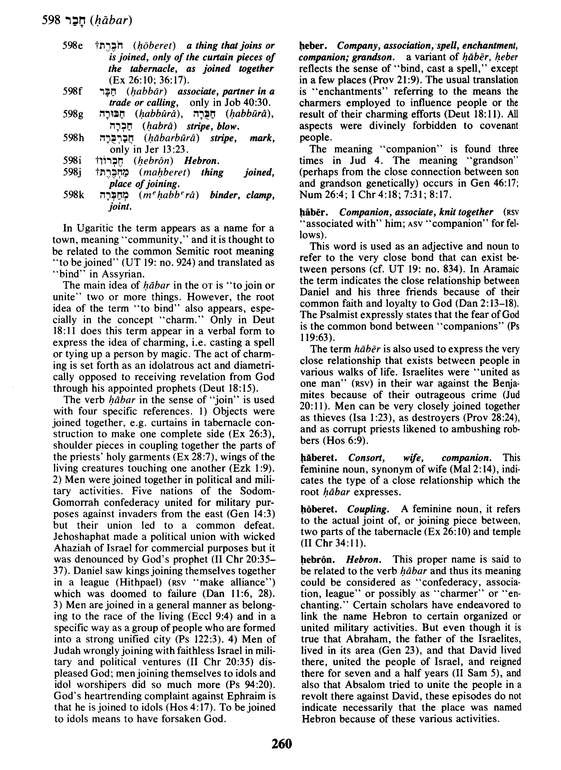
Even readers with little or no knowledge of Hebrew can use it profitably. This reference work can serve a wide audience, from professors and researchers to pastors and students of the Bible. Well-organized and clearly written articles analyze a significant portion of the Old Testament vocabulary.

In these volumes outstanding scholars provide in-depth and wide-ranging investigations of the historical, semantic, and theological meanings of Old Testament concepts. )Īn indispensable and incomparable reference work, this translation of the Theologisches Handwörterbuch zum Alten Testament makes accessible for the first time in English a wealth of theological insight.

In this new edition English translations have been provided for all Hebrew phrases and sentences, and the bibliography has been expanded. Its contents are based on classical Hebrew prose, but some account is also taken of the deviations in later prose and poetry. Developed over fifteen years in a formal course on Hebrew syntax at the University of Toronto, it treats the syntax of the noun, the verb, particles and clauses, with a selection of illustrative examples. This outline by Professor Williams re-emphasizes the significance of word order in Hebrew.

This is particularly true of word order, for when an inflected language loses its case endings, word order assumes many of the functions of the former cases. Its relative importance varies according to the language considered. Syntax, the relationship of words to one another, forms, together with morphology, the material of grammar. (From the publisher's website.)Īlthough the morphology and lexicon of Hebrew are reasonably well understood, its syntax has long been a neglected area of study. This 2 volume edition is an unabridged version of the five volume edition of The Hebrew and Aramaic Lexicon of the Old Testament. But the alphabetical ordering of entries rather than the traditional arrangement of words according to their roots is particularly helpful to the new student, and also saves the advanced user much time. The enormous advances that have taken place in the field of Semitic linguistics since the days of the older dictionaries of Classical Hebrew are well documented and assessed, as well as the often detailed discussions in modern Bible commentaries of words where the meaning is particularly difficult. The dictionary combines scholarly thoroughness with easy accessibility, and so meets the needs of a wide range of users. In this Study Edition the complete vocabulary of the Hebrew Bible, including those parts of books which are written in Aramaic, is available. It has proven to be a valuable resource for scholars and students. The online version of the EHLL can be found here.īrill is pleased to present this Study Edition of the The Hebrew and Aramaic Lexicon of the Old Testament in two handy volumes. With over 950 entries and approximately 400 contributing scholars, the Encyclopedia of Hebrew Language and Linguistics is the authoritative reference work for students and researchers in the fields of Hebrew linguistics, general linguistics, Biblical studies, Hebrew and Jewish literature, and related fields. The encyclopedia contains overview articles that provide a readable synopsis of current knowledge of the major periods and varieties of the Hebrew language as well as thematically-organized entries which provide further information on individual topics, such as the Hebrew of various sources (texts, manuscripts, inscriptions, reading traditions), major grammatical features (phonology, morphology, and syntax), lexicon, script and paleography, theoretical linguistic approaches, and so forth.

In a four volume set, complete with index, the Encyclopedia of Hebrew Language and Linguistics offers a systematic and comprehensive treatment of all aspects of the history and study of the Hebrew language from its earliest attested form to the present day. Although it ceased to be a spoken language by the 2nd century C.E., Hebrew continued to be used and to develop in the form of a literary and liturgical language until its revival as a vernacular in the 20th century. The Hebrew language has one of the longest attested histories of any of the world's languages, with records of its use from antiquity until modern times.


 0 kommentar(er)
0 kommentar(er)
